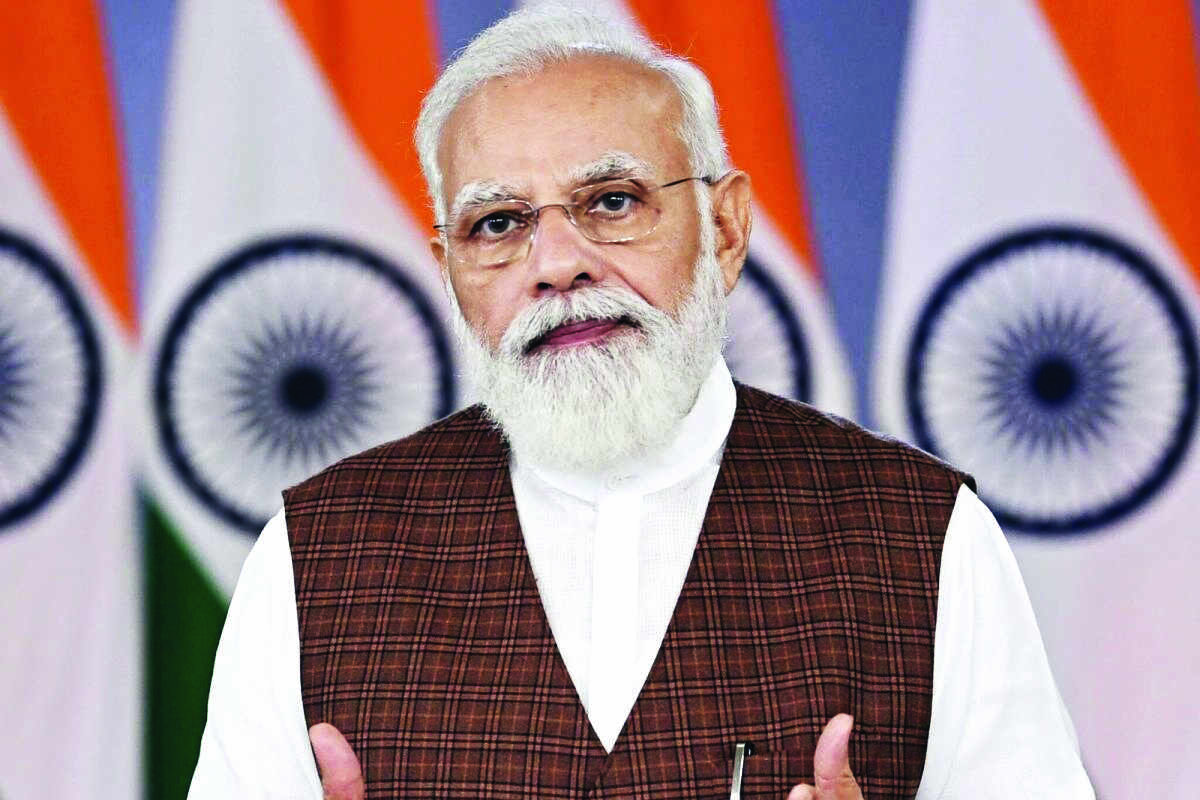Modi's strong & welfare-centric leadership has earned him unparalleled acceptability

New Delhi: Since Narendra Modi became the Prime Minister in 2014, the country's political narrative witnessed a pivotal change. Narendra Modi has emerged as a politician who has influenced the public mind in a wide context.
Not only that, Modi has also influenced the psyche of the country far beyond Nehru and Indira. Of course, some people would call it an exaggeration. So, it is necessary to test this comparison by looking at facts. In a democracy, the most reliable trial of popularity and acceptability is the mandate. Before 2019, there have been only two occasions in the history of general elections when a Prime Minister was re-elected with a larger mandate than his last election.
First, Nehru in 1957 and then Indira in 1971 achieved the feat. In the 1984 elections, the Congress had a larger mandate than 1980; however, that election was held in the shadow of the sympathy wave over the assassination of Indira Gandhi. When Nehru was re-elected in 1957, he got 2 per cent more votes than last time. When Indira was re-elected in 1971, she gained 2.9 per cent more in comparison to 1967. In terms of party, in 1984, Congress got a 5.4 per cent increase compared to 1980. However, when it comes to incumbent PM Narendra Modi, during the last general elections in 2019 held under his leadership, the BJP won 6.4 per cent and the NDA 6.7 per cent more votes than 2014.
This lead is greater than the lead the Congress got in the 1984 elections due to the sympathy wave. Another fact that needs to be understood is that in both 1957 and 1971, the Congress was ruling nationwide and the opposition parties were reduced to a comparatively weaker position. Today, the opposition is stronger.
Decimating this opposition, Narendra Modi's second election and gaining more support than any leader in history was not a trivial matter for those who understand politics closely. It is clear from the data that after the completion of eight years of his tenure, the acceptance of Narendra Modi has only risen.
Not only is Modi more popular than his predecessors but also the nature of his popularity is different from the great leaders of history. When it comes to Modi's likeability, the boundaries of ideologies have become loose. During the period of Nehru and Indira, the boundaries of ideologies were intact. Each party was centered around an ideology. Whether to oppose or agree was decided based on the ideology a party subscribed to. Today the situation has changed significantly. The decision to support or oppose Modi is only dependent on what Modi is thinking, speaking and doing. If Narendra Modi takes an initiative that is close to 'communist' ideas then the communists and socialists of India oppose him even at the cost of siding with total capitalistic principles.
The opposition of politicians to Modi from across ideologies in the country is not determined by what their ideological beliefs are, rather it is determined by what stance Narendra Modi is going to take on it.
The pace of ideological shift is determined by Narendra Modi's personality. In the 1970s, Congressmen used to say 'Indira is India. India in Indira', today Modi's opponents seem to believe 'Modi is the issue, the issue is Modi'.
Modi's popularity stems from the incredible public trust he has evoked by changing the nature of debates and events through his appeal. Such a unique example of public participation and public trust in one man in a multi-party system is nearly unprecedented in Indian political history.
Many has left many shocked by uniting the whole country with its many diversities and differences on several occasions through his public appeals. Such charisma was last seen in Mahatma Gandhi.
A poet wrote of Gandhi, 'Wherever you walk, walk in that direction.' The fact that Modi's popularity was not impact even in the adverse conditions created by the Covid epidemic also shows the strong faith the people of India repose in him.
Modi has earned people's faith by proving himself as a 'hero who delivers'. During the difficult period of Covid, when everything came to a halt, the act of providing financial support to more than 25 crore people through DBT, as well as giving free ration to 80 crore people, makes Modi the real champion of 'Garibi Hatao'.
Such is Modi's charisma that on his appeal the country unites to fight and rise as one even in dire situations. This makes him the universal leader of India — such a universal leader, against whom the unity of the opposition also seems to be ineffective. Even Indira Gandhi could not achieve such a victory over the unity of the opposition in 1977. Modi has emerged as a strong leader as well as a sensitive administrator. In the times of Covid, those aspects of human sensibility were been prioritised, which the world had ignored. It shows his sensitive vision towards human welfare.
India has emerged stronger from Covid-19 with world leaders lauding India's fight against Covid. Modi's handling of the Covid crisis has led to the emergence of a 'Self-reliant India' with new opportunities being seen globally as the leader of the world in difficult situations.
This was made possible due to Modi being an effective communicator and 'doer'. He is a leader who believes in communicating directly with the people. He also seems to be a leader who prefers policy-making on issues that come up during direct dialogue with the public rather than advisers. This helps establish an instant connect with people.
It wouldn't be an exaggeration to call Modi the leader of 'people's mind'. These are the reasons that make Modi the most popular, influential and popular leader in the history of independent India. Of course, Modi is not the 'first' Prime Minister of the country, but he has certainly become the 'first' public leader of his kind.




